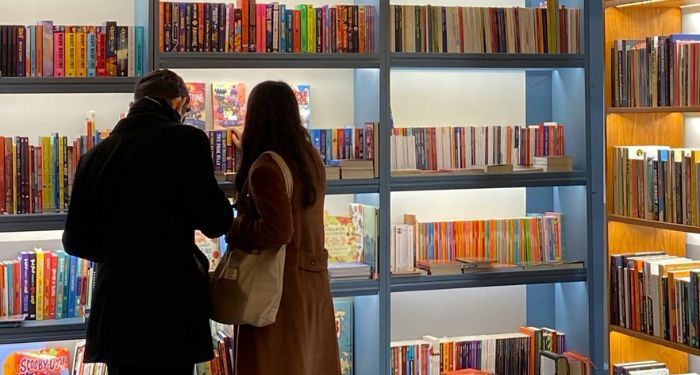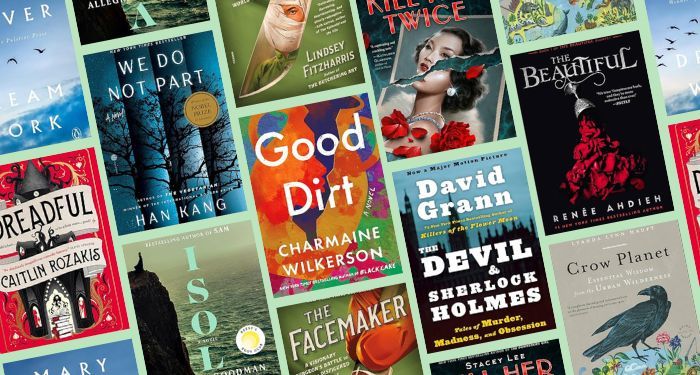My colleague Kelly Jensen, a champion of book-banning documentation, connected me with the publicist of a librarian a few weeks back. The librarian’s name was Rodney Freeman, and he was doing interviews and various other publicity for his documentary on Black American librarianship.
I went into the conversation knowing that I didn’t know much about the history of American libraries, much less Black American libraries, but when he and I got to speaking, that lack of knowledge began to feel like a chasm. During that first meeting, I learned everything from how today’s public libraries’ focus on community was copied from Thomas Fountain Blue’s model of Black public libraries as a community resource, to how a titan in Black librarianship—E.J. Josey—took the entire American Library Association to task for their continued support of segregated libraries in the ’60s.
I learned things I was surprised to see I had never heard of, even in all my years of loving libraries, being a reader, and working for Book Riot.
But I also realized something.
In all of that, all of the struggle that felt constant and the seemingly all-consuming oppression, the fight never stopped. When the Black community was deprived of funding and resources other, white communities had, Thomas Fountain Blue made the public library a resource for everyone. And, when public libraries, which were supposed to be institutions of learning and progress, perpetuated racism through segregation and other methods, Black librarians banded together to write resolutions and students organized protests.
No matter what, people found a way to press on to make public libraries a resource for everyone. Speaking to Rodney about the library-focused freedom fighters got me thinking about all the other times in American history that fights for civil rights have run right alongside literature and libraries. If we want to take it all the way back to the foundations of this country, we see that there is a well-established history in America of literacy running parallel to the quest for civil liberties. For enslaved people who dared to learn how to read, literacy was both a blessing that could lead to freedom and a potential death sentence if discovered. Despite this, many still learned to read, just as Black librarians fought on decades later—by supporting their community even as they were discriminated against themselves.
Then there’s today.
As I write this, it’s already been a few days since the Institute for Museum and Library Services (IMLS) was gutted, and a couple of days since the ALA filed a suit against Trump’s administration for it. It’s clear with this administration that the most recent war on books—which started with an increase of book banning a few years ago—is a larger war on freedom, especially when it comes to certain groups. It’s no surprise that the most commonly banned books are by and about non-white and queer people. They don’t want us reading about us, just like they didn’t want us to back then. That’s why, like back then, we should do it anyway. We should do it more.
Not only that, turning to literature—and looking back at the history of librarianship and literacy in this country—can show us how our ancestors resisted, which could teach us how to fight back now.
That’s what this new series is: by looking at the history of resistance through reading, we can become fortified in our current fight. Through articles, interviews, podcasts, and more, we’ll both revisit the past to see how people made it through worse times, and highlight what people are doing now. We will explore all the ways that not only Black people have resisted oppression through literacy, but also how non-Black, queer, Latine, and other groups have as well.
Because as much as books, libraries, and literature can be sources of entertainment, they can also be incendiary in the best way.
Stay tuned for more entries in this series, which will bolster your spirit and even show you ways you can join in resisting.
TodayIntroducing: Reading and Resistance—And How Literature Has Always Been Tied to American Freedom
A new series to bolster your spirit and even show you ways you can join in resisting.
226 days agoHear First Hand from Incarcerated People Why Reading in Prisons Is So Important
Being able to read while incarcerated lowers recidivism—so why is it so stricted?
247 days agoCensorship in Prisons is Part of Slavery’s Legacy
And books are vital for freedom.
925 days agoThe Neglected Tale of the Tougaloo Nine and their 1961 Read-In
In 1960s Mississippi, nine Black students put their lives on the line to fight for equal access to public libraries.













 Bengali (Bangladesh) ·
Bengali (Bangladesh) ·  English (United States) ·
English (United States) ·